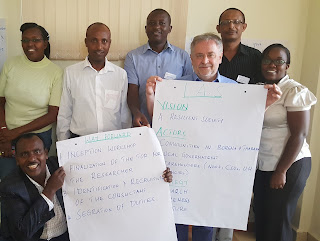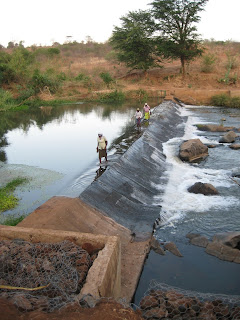
SWEDISH MISSION COUNCIL RESILIENCE WORKSHOP Tuesday 13th March; Lessons Learnt Resilience capacities are cultural. They are difficult to define and even more difficult to measure. There is need to think outside the box when coming up with results frameworks Absorb ⇒ adapt ⇒ Transform What capitals can support resilience? And how are they interconnected with each other? The capitals are; 1. Human 2. Natural 3. Social 4. Physical 5. Financial 6. Institution MEMBER ORGANISATION GROUP REFLECTION- IAS Ketema; IAS Country Director- Ethiopia IAS is unique in its approach to resilience- in terms of drilling and the Tharaka irrigation ...

